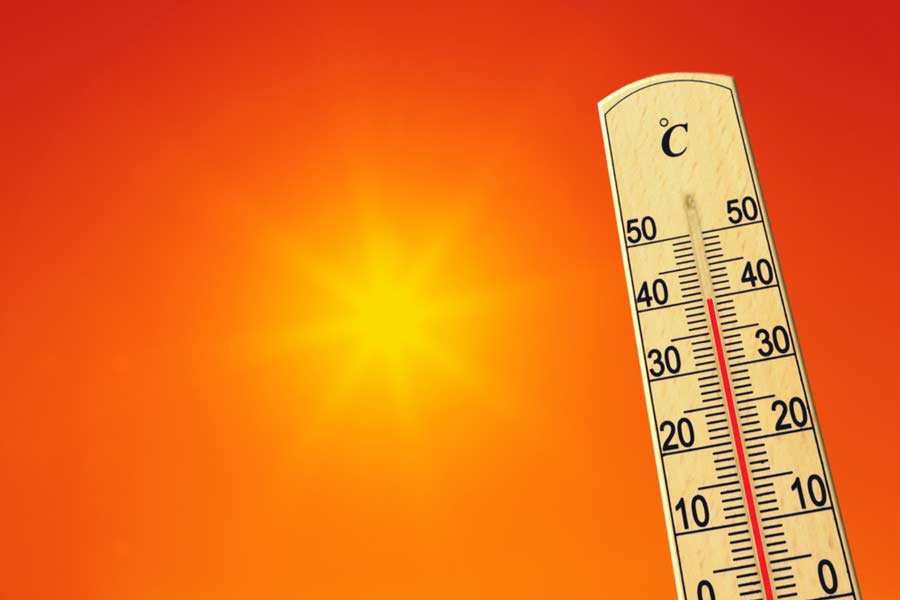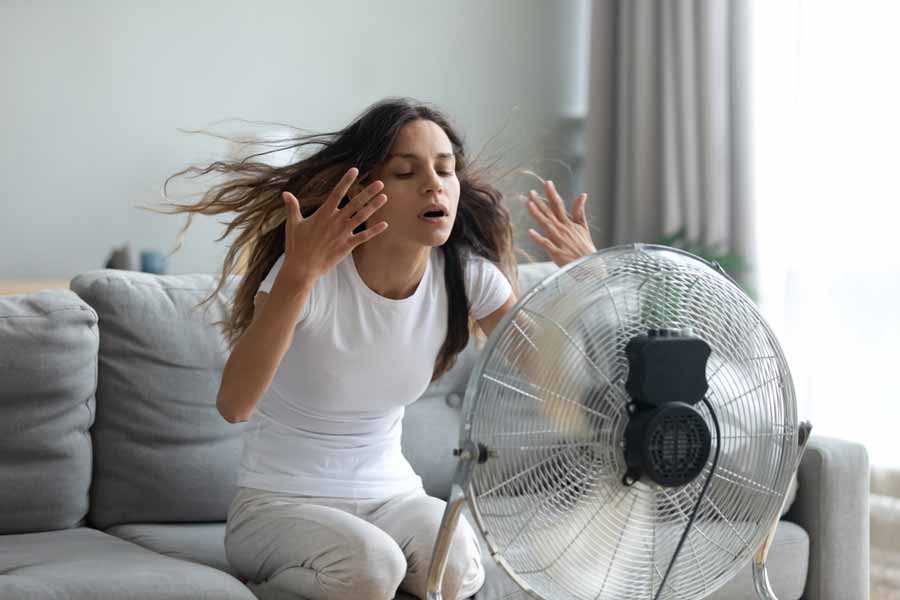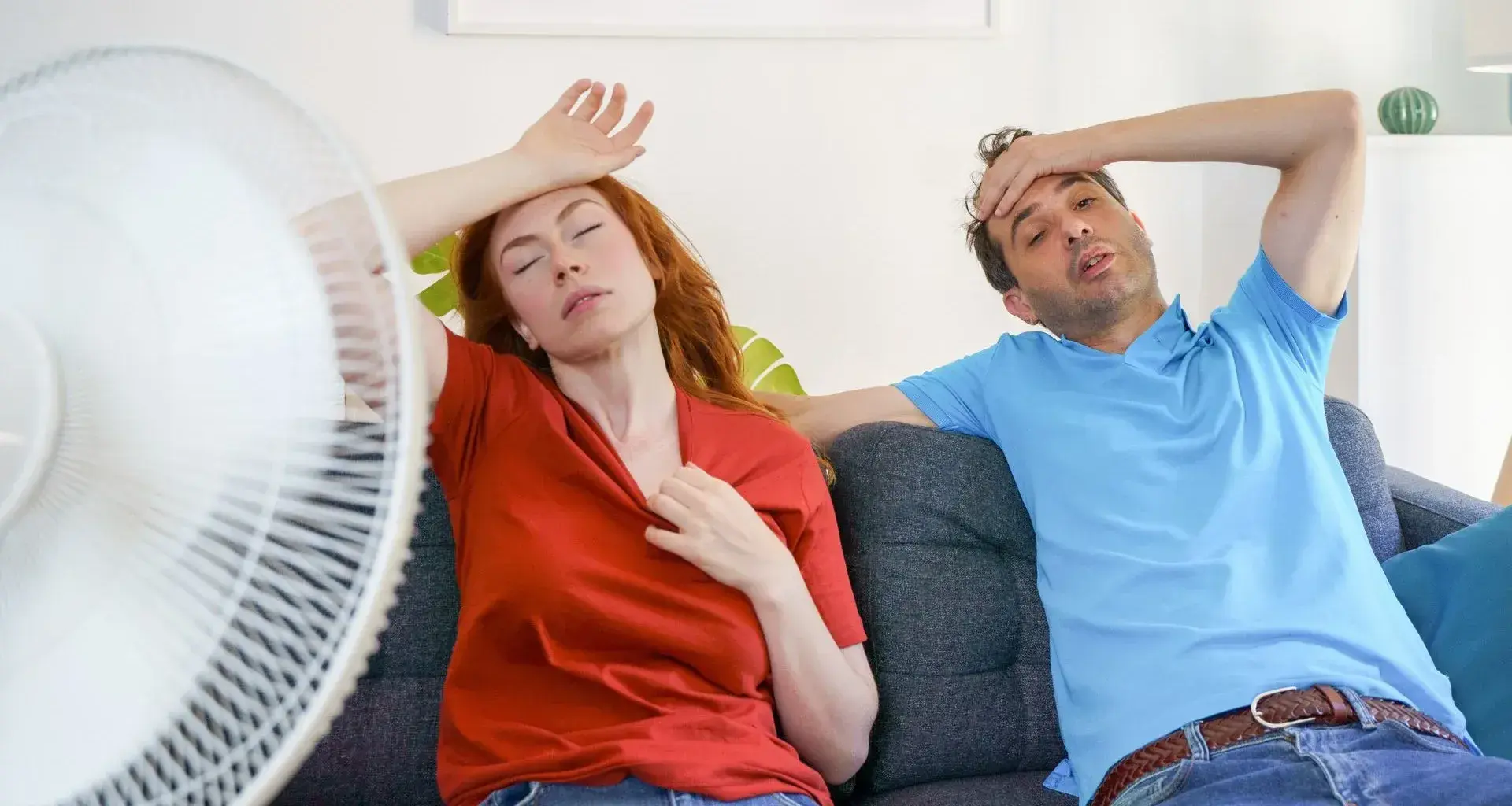The dog days arrive during July and August, the season with the hottest days of the year in Mexico. Health risks increase too, according to experts.
According to Dr. Rocío Robles, a specialist in family medicine and gerontology at TecSalud, the dog days last for approximately 40 days, and can extend until September in certain regions.
“The characteristics of the dog days include high temperatures with little variation between day and night. This prevents the temperature from dropping and leads to a higher than usual thermal sensation,” she explained.
“While the general population is not exempt from suffering life-threatening conditions, it’s important to take measures this season,” emphasized Dr. Robles.

What are the dog days?
According to Robles, the dog days are a phenomenon characterized by temperatures over 37 degrees, a lack of rain, excessive air temperature, and clear skies.
The phrase “dog days” refers to the Canis Major (Greater Dog) constellation and its star Sirius “Scorcher,” whose first appearance on the horizon coincided with the phenomenon of extreme heat.
According to the National Meteorological Service and the Mexican Social Security Institute, the dog days are caused by an accumulation of hot air in the atmosphere that works as a wall that inhibits cloud formation, so the rains decrease and, as a result, temperatures rise.
Dangers of extreme heat
This expert says that the danger of the dog days occurs because during this time, there’s an increase in cases of heat stroke, sunburn, and dehydration, among other effects.
“The main risk is what’s known as heat stroke, the general alteration of temperature regulation, which in itself is an uncontrolled elevation in body temperature of up to 40 degrees,” says the TecSalud doctor.
In mild cases, heat stroke can cause:
- Cramps
- Exhaustion
- Fainting
In severe cases, it can cause:
- Malignant hypertension, which leads to heart damage and even brain swelling.
“This is very dangerous, especially for vulnerable populations such as children and the elderly,” she added.

12 ways to protect yourself during the dog days
As part of the necessary measures, this health expert shares 12 tips you need to know for taking care of yourself during the dog days this 2022.
1. Try to stay indoors
During the dog days, the thermal sensation inside enclosed spaces increases, so it’s important to use blinds or curtains to block the sun’s strongest rays.
Likewise, fans or air conditioning can be used to cool down interiors intermittently.
2. Keep yourself hydrated as much as possible
During this hot period, stay hydrated, preferably by drinking purified water even if you aren’t thirsty, says Robles.
Avoid consuming very cold alcoholic beverages or those with a high sugar content. It’s better to opt for salty beverages or natural juices such as lemonade, fruit juices, etc.
In the case of babies, the Tec expert says that they should be breastfed more than usual.
3. Avoid sun exposure between 10 AM and 4 PM
Avoid being in hot, humid weather for long periods of time.
Also, remember to limit your sun exposure between 10:00 a.m. and 4:00 p.m., when the rays are strongest.

4. Opt for light clothing to keep you cool
During these months, choose to use Dry Fit clothing that allows sweat to evaporate and keeps you cool.
If the daily temperature exceeds 37 degrees Celsius, wearing black clothing can allow you to better reduce body temperature.
The doctor emphasizes the importance of not excessively covering children during the hot season.
5. Don’t forget to use sunscreen on your face and body
Even if you don’t plan on leaving the house much, it’s imperative to use some form of sunscreen to protect the skin on your face and the parts of your body that are exposed to the sun’s rays.
It’s recommended that sunscreen be applied to dry skin 30 minutes before sun exposure for it to absorb and for best results. Don’t forget to reapply every two to four hours!
6. Set limits to the intensity level and amount of exercise you do outdoors
She recommends avoiding exercising in direct sunlight, as well as strenuous exercise in very hot environments.
If you are going to exercise, it’s better to opt for moderate or low intensity routines that you can do in ventilated indoor spaces.

7. Children and the elderly are vulnerable sectors
It’s important to pay special attention to children under the age of four and adults over 65, since she points out that they find it more difficult to adapt to the heat.
If they’re transported in a private vehicle, never leave them alone in a locked car, even for a “short” period of time, since the heat can put their health at risk.
8. Don’t forget to take care of your pets
Whether you’re working, studying, or have plans out and about and are going to leave your pet at home, it’s vital you leave enough water for it to cool off in a ventilated environment.
If they have access to a patio, make sure it has shaded areas where they can rest and never leave them alone in a locked car.
9. Use the necessary accessories to protect yourself outdoors
In addition to light clothing, she recommends using parasols or umbrellas, hats, caps, and sunglasses to cover as much of your body as possible from the sun.
If you’re looking for relief from the heat, you can even dampen some towels to keep certain areas of your body cool.

10. Be careful with the food you eat and its preparation
She recommends avoiding eating food that isn’t well cooked, as it can make you sick.
What’s more, since bacteria develop more easily, carefully disinfect all the fruit and vegetables you’re going to consume.
Avoid eating street food, particularly fish, seafood, and very hot or heavy meals. It’s better to include more fresh fruits in your diet, such as watermelon, cucumber, lemons, and oranges.
11. Carefully ration the water you use
While frequent cool showers can help lower your body temperature, it’s important to be mindful of our water use during a drought.
Reducing the amount of time you spend in the shower, washing the car with a bucket and reusing the water for watering plants are some of the actions you can take to moderate your consumption.
12. Treat any wound with care and visit your doctor if you feel unwell
Due to the rapid reproduction of bacteria during the dog days, it’s important to wash and disinfect any wound to avoid complications.
If you have any symptoms such as a headache or dehydration, consult with your physician so they can offer you the necessary treatment.

What should you do in the case of a heat-related illness?
Although sunstroke or heat exhaustion should be taken seriously, Dr. Robles says that these conditions can be treated relatively easily.
First, the expert recommends hydrating the person affected, placing them in the shade, and removing excess clothing.
In these cases, she recommends paying special attention to the person’s temperature and blood pressure.
- Warning signs
As for heat stroke, it’s considered a serious medical condition characterized by a body temperature over 39.4 degrees Celsius.
In this situation, it’s imperative to pay attention to warning signs such as:
- Hot and dry skin with no sweating
- Confusion or loss of consciousness
- Frequent vomiting
- Shortness of breath or trouble breathing
In a case of heat stroke, it’s important to immediately transfer the person to a hospital so that they can receive specialized medical care.
YOU MAY ALSO BE INTERESTED IN:





